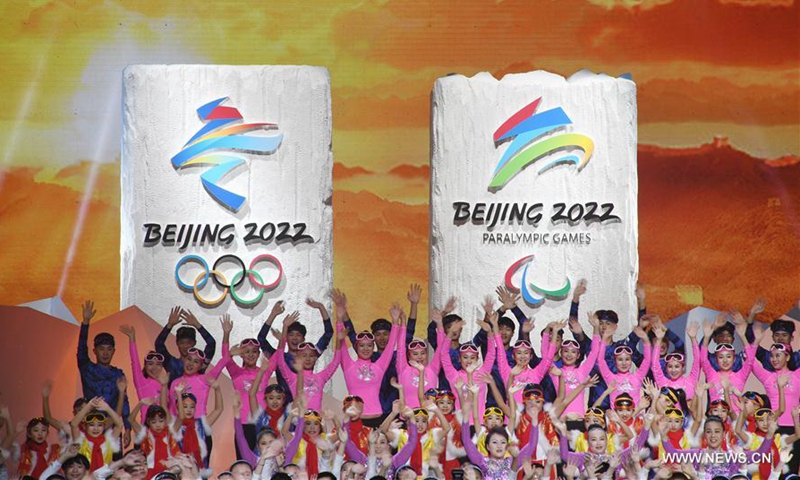
The emblem (left) of Beijing 2022 Olympic Winter Games and emblem of Beijing 2022 Paralympic Winter Games are seen during the emblem launch ceremony for the Beijing 2022 Olympic and Paralympic Winter Games in Bejing, capital of China, December 15, 2017. Photo: Xinhua
Whether Australia should boycott the 2022 Beijing Winter Olympics is causing a debate in the country. It's reported that next month, the Australian Senate will deliberate on Australia's participation.
Earlier this month, independent senator for South Australia Rex Patrick called on the Australian government to work with the Australian Olympic Committee (AOC) to ensure that Australia boycotts the 2022 Winter Olympic Games, citing alleged human rights abuses in China. After his proposed boycott was shot down by the AOC, he criticized AOC President John Coates of holding "an antiquated and self-serving vision of international sports," claiming "human rights must come ahead of sports."
What "vision of international sports" should a country have? Answers may vary, but a basic consensus in international society is that sports should be separated from politics. Patrick, his likes and the so-called Australian human rights activists apparently are the ones who really hold a "self-serving" vision of international sports that politicizes sports for their political ends.
The excuse they are using to resist the Beijing Winter Olympics is human rights. The fact is, Australia is not qualified to point an accusing figure at China's human rights issues. Not only has it turned a blind eye to China's human rights improvement, but some of its politicians and think tanks have been sources of rumors and lies about China's human rights record, especially in Xinjiang. For instance, it has become no secret that the Australian Strategic Policy Institute is an infamousanti-China vanguard which has long received funding from the US State Department, and has fabricated and spread rumors and misinformation to demonize China.
Boycotting the Winter Olympics has nothing to do with human rights. It's only a petty trick some anti-China Australian politicians have played under the guise of human rights to attract attention and gain political points by politicizing the Olympics. If Australia boycotts the Games, it will bring nothing but harm.
Should Australia be absent from the sporting event, Australian athletes' preparations and training for the Winter Olympics will be wasted. They will lose the opportunity to compete with other athletes, becoming political pawns and victims. As for Australia, since the mainstream opinion of international society opposes the politicization of the Olympic Games, acting against this would deal a heavy blow to Australia's reputation. A Winter Olympics boycott will trigger strong resentment from the Chinese people, further negatively affecting educational, economic and people exchanges between the two countries.
Politicizing sports has become increasingly unpopular. Voices which called for a boycott of the 2008 Beijing Olympics and resistance to the 2018 FIFA World Cup in Russia were marginalized in the end. Former Australian athlete and International Olympic Committee vice president Kevan Gosper voted to support the boycott of the Moscow Olympics in 1980 during the Cold War. He said he now regrets it. "I think there's nothing to be gained by having politics interfere with the values of sports, particularly on the global level," Gosper was quoted in early October as saying by the Australian Broadcasting Corporation.
Some Australian politicians think they could showcase their and Australia's political power by boycotting the Beijing Winter Olympics. But what they show is their political narrow-mindedness and surrender to the US influence.




